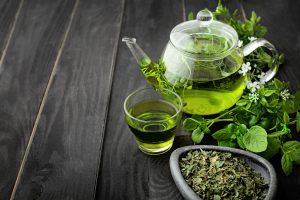
It seems that drinking a lot of green tea can help stroke and heart attack survivors avoid future cardiovascular events, thereby contributing to a longer and healthier life.
Just how much is a lot? The study, published in the journal Stroke, found that stroke and heart attack survivors who drank at least seven cups per day were 62- and 53-percent, respectively, more likely to die than non-green tea drinkers.
The study followed more than 46,000 Japanese adults between the ages of 40 and 79 for roughly 20 years. Over that time, there were 478 stroke survivors and 1,214 heart attack survivors.
Does the study mean that green tea is a magic elixir for your heart? No. Coffee was also found to have benefits. Neither drink will cancel out a poor diet or lifestyle. But it is possible that when combined with a healthy lifestyle, green tea may offer advantages.
These benefits come from flavonoids, which are plant-based antioxidants that may help your veins fight oxidation, inflammation, and remain loose and relaxed to encourage better blood flow.
But stroke risk and heart attacks are multi-factorial. And while this new study adds further evidence to a large body of work showing green tea’s benefits, it is only part of the picture.
A preventative lifestyle to reduce the risk of stroke and heart attack also includes limiting processed food; eating more fruits, vegetables, and healthy fats; exercising; not smoking, and limiting alcohol intake.